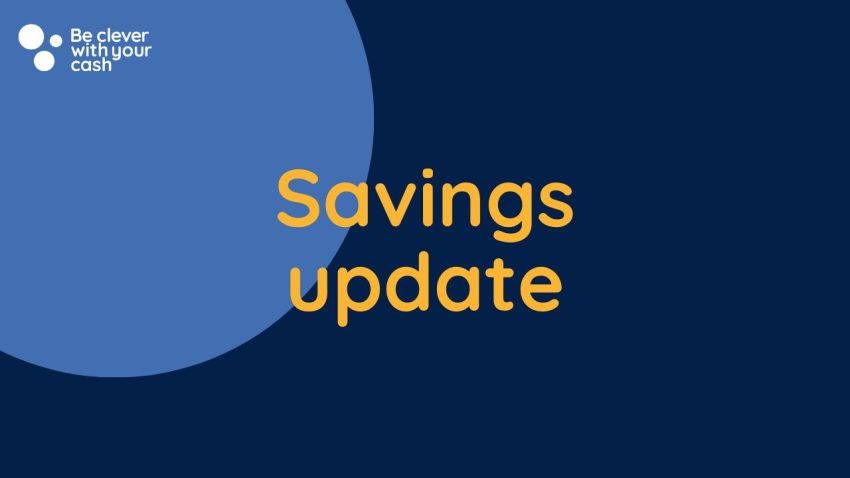If you’re unhappy with how your financial provider has handled your complaint, try the FOS
Banks and other financial firms don’t get things right all the time.
And if you’re not happy with the service you’ve received, we at Be Clever With Your Cash, encourage you to speak up.
But what if you don’t get the response you want or adequate compensation as a result of your complaint?
Well, your next step is the Financial Ombudsman Service. Here’s everything you need to know.
Some articles on the site contain affiliate links, which provide a small commission to help fund our work. However, they won’t affect the price you pay or our editorial independence. Read more here.

What is the Financial Ombudsman Service?
The Financial Ombudsman Service is an organisation set up by Parliament to handle disputes between regulated financial firms that provide services in or from the UK, such as banking, pensions, insurance and loans. The service is free to use and the idea is that it’s an alternative to court.
When it’s looking into your complaint, it’ll also speak to the business. If it thinks it’s treated you unfairly, it’ll outline what needs to be done to put things right. The benchmark here is to put you in the same position you’d be in if the firm hadn’t got things wrong.
This could include refunding whatever you’ve lost and in some cases, you could be paid compensation and interest.
Is there a time limit to complain?
Yes – you must contact the Ombudsman within six months of getting your final response letter from the business you’re complaining about.
What complaints does the FOS deal with?
If you’ve had a problem with a regulated financial services company that offers products in or from the UK, then the Ombudsman is likely to be able to help you.
Products that are usually covered by the FOS include (but aren’t limited to):
- Banking: accounts, payments, cards, cash machines and more
- Fraud and scams
- Insurance: home, travel, motor, wedding and more
- Investments
- Loans and other types of credit including car finance and payday loans
- Mortgages: equity release, valuations, early repayment charges
- Pensions and annuities
The Ombudsman also says you can make other types of complaints if you’re been treated unfairly with regards to Covid-19, domestic or economic abuse, the cost of living and power of attorney.
Get the best of our money saving content every week, straight to your inbox
Plus, new Quidco customers get a high paying £18 welcome offer

What complaints can’t the FOS help with?
The Ombudsman won’t be able to look at complaints that have exceeded the time limit or if you’re complaining about a non-UK business. For the latter, there might be a similar dispute resolution body in the country of that company.
The FOS also can’t help with problems that have been looked at by the FOS already or have been ruled on by a court.
Some complaints might have to be dealt with by another organisation, which the Ombudsman can direct you to.
How does the FOS complaints process work?
You first need to complain to your provider to give them a chance to sort it out.
If you’re not happy with the final response letter or they don’t respond to your complaint within eight weeks, you can then contact the Ombudsman.
The FOS will want to see evidence of what’s gone wrong so keep hold of any emails, screenshots, and other notes or correspondence to back your claim.
It’s a good idea to use the Ombudsman’s online complaints checker next, to see if it can help you. You’ll go through some simple questions and it should only take a few minutes.
If by the end of the questions, the FOS thinks it can help with your complaint, you’ll then need to fill in an online complaints form.
You’ll need to know:
- The name of the financial business you’re complaining about
- Dates of correspondence with the business, including the date of its final response
- Your account or policy details
You’ll also need to explain what you’re unhappy about and how the business has responded.
The Ombudsman suggests the form could take up to 30 minutes to finish and you can’t save it and come back to it – it needs to be done in one go.
Alternatively, you can make your complaint over the phone by calling the FOS on 0800 023 4567 or by arranging for forms to be sent to you. The Ombudsman says its busiest days are Mondays so it’s best to make the call on another day, if you want shorter waiting times.
What happens after I’ve submitted my complaint?
Now a word of warning, it can take a long time for your complaint to be dealt with by the FOS.
You should get a response within seven days to your initial submission within seven days but it could take two to three months for your case to be allocated to a case handler for investigation. However, it can be even longer depending on what your complaint is about.
During this time the FOS contacts the business you’re unhappy with and they may get in touch with you to settle with you directly.
This happened to me when I made a complaint about a travel insurance company who made it impossible to submit a claim. The Ombudsman contacted the firm and it offered me £250 compensation, which I was happy to accept to put an end to the matter.
If the firm doesn’t get in touch, or if you want to continue with the Ombudsman, it can take up to another 90 days for your case handler to investigate and come back with their assessment. During this time, you should be kept updated once a month.
If you disagree with what the case handler says (or if the business pushes back) you or the firm can ask for a ‘final decision’ to be made. This means an ombudsman will review the investigation and make a call on whether to uphold your complaint or not. However, expect this to take longer.
So overall, it could take as long as six months or even longer for your complaint to be investigated and for a decision to be made.
 Featured switching deal
Featured switching deal
 Customer rating
3.8/5
Customer rating
3.8/5
- Switch bonus£200
- Offer endsUnknown
- Extra bonus£25 Amazon Gift Card
- FSCS Protected? Yes
- Switch bonus requirements Switch using the Current Account Switch Service and close your old account within 60 days of starting the switch
- Deposit requirements Deposit £1,500 in the first 60 days from opening the account
- Direct debits transferred over Set up two Direct Debits before or after the switch from a selected list of household bills
- Existing customers? Can't have held any Santander current account on 1 January 2025
- Restrictions Can't have received a switching bonus from Santander already, offer limited to once per person
- Eligible accounts Open a new or hold an existing Everyday, Edge, Edge Up or Edge Explorer current account
- £25 Amazon Gift Card requirements To qualify for the gift card, you need to complete a full switch using CASS, and make five debit card transactions within 30 days of opening the account
How much compensation could I get?
The FOS can tell a business to compensate you in a number of ways. These include:
- Covering financial losses
- Compensation for stress and inconvenience – or the impact of what went wrong (this could include the time you spent trying to get the issue sorted out and if there was a negative effect on your health)
- Non-financial compensation
- Interest
- Paying costs (although this is rare)
When it comes to covering your costs, the FOS has a limit of how much it can ask the business to pay. At the moment it’s £445,000 for complaints referred to it on or after 1 April 2025 about issues that happened on or after 1 April 2019.
If the FOS decides the business should pay you interest (say because of a bank’s mistake you’ve been without your funds for some time and missed out on returns) they can ask for 8% for the days you’ve been without your money.
However, as announced in Rachel Reeves’ Mansion House speech, from January 1 2026 this is changing to 1% plus the Bank of England base rate.
How much you’re awarded for stress and inconvenience will depend on the circumstances. For example, if it’s a one-off mistake the FOS could ask the business to pay you a small sum, probably below £100, to apologise.
Or, if an error has caused you more frustration and annoyance than you’d expect from day-to-day life and an apology won’t cut it, you could be awarded a sum between £100 and £300.
This could be paid if you’ve experienced repeated small problems, or a larger single mistake, that have meant you’ve needed to put in more effort to sort it out. The issues could have gone on for days or weeks and caused you some stress or inconvenience.
When making your complaint, make sure you include the impact the business’s error or errors have had on your life including stress, impact on health, time you’ve spent on it, and inconvenience.
It’s worth noting that if you do accept compensation as decided by the FOS, it means you’re unlikely to be able to get more if you decide to later go to court.
What’s the likelihood of the FOS ruling in my favour?
It’s hard to say, as it’ll depend on what your complaint is.
However, the FOS does publish uphold rates for different categories, which I’ve included below for 2024/25:
| Complaint category | Uphold rate |
| Banking and payments | 32% |
| Consumer credit | 32% |
| Mortgages | 32% |
| Insurance | 38% |
| Investments | 36% |
| Pensions | 48% |
So, if we go by the averages, you’ve got a decent chance of the Ombudsman ruling in your favour.
If you want to look at the uphold rate for specific products you can check the figures on the FOS website.
Is it worth making a complaint to the FOS?
Definitely. If you think you’ve been wronged by a financial services company and you’re getting nowhere with them, there’s nothing to lose (and everything to gain) by taking your complaint to the Ombudsman.
Yes, it could take a while to get the matter resolved but as I mentioned before, the FOS could prompt the business to do the right thing without the need of a full investigation, and it’s a free alternative to taking the company to court.





